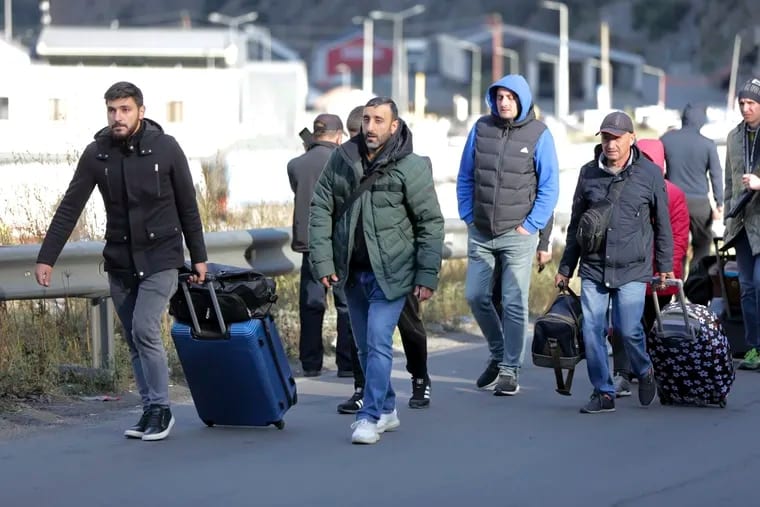The news article gives a brief description of Astana and Tbilisi as they open the boundaries of the countries for the residents of Russia.

The governments had announced that they would welcome Russians escaping conscription as lines of thousands of mostly young men who did not want to fight in Ukraine grew around their borders.
All of Russia’s neighbours are facing difficulties due to the massive departure, which was sparked by President Vladimir Putin’s announcement of a widespread mobilisation last week and by concerns that Russia may soon close its borders. Some nations, like Finland, have taken action to restrict access.
However, on Tuesday, Kazakhstan’s president stated that welcoming Russians was a humanitarian matter, indicating an oblique criticism of Moscow’s invasion of Ukraine and its conscription rules by one of its closest economic partners.
Russian immigrants have been entering in large numbers recently, as per President Kassym-Jomart Tokayev. Many were forced to flee, as there was no other alternative. We must be considerate of them and watch out for them. The problem is both political and moral. Tokayev continued by stating that he would talk to Putin about the situation. Astana, which has a 7,500-kilometre boundary with Russia and now has long been one of that nation’s most trustworthy economically and politically allies in the broader former area, has consistently shown its opposition to Moscow’s conflict in Kyiv.
The U.S. The embassy of Astana declared on 26th September 2022 that the country would not acknowledge any potential absorption of seized territories in Ukrainian southern and eastern regions if Moscow were holding elections.
Astana also denied rumours that it would send individuals to Russia for extradition if they got a call-up notice or were suspected of avoiding conscription at home.
At a conference on Tuesday, Kazakhstan’s interior minister Marat Akhmetzhanov was cited as saying, “If the conscription offices are looking for someone, this is not a legal foundation for extradition.”
According to Akhmetzhanov, extradition can only take place if a global arrest order has been issued. If a person is listed as being wanted internationally, Kazakhstan will locate them and extradite them if a crime has been committed against them.
About 98,000 Russians have entered Kazakhstan since Putin issued the mobilisation edict on September 21, according to the ministry.
Hundreds of Russians were pictured in social media videos waiting in line outside registration offices in Kazakhstan cities to obtain identification numbers that would enable them to open bank accounts.
More than 64,000 Russians left the country in the previous six days, according to the interior ministry, and many have also used Kazakhstan as a transit country to get to other places.
The roads from Russia into Georgia are also clogged with vehicles. People riding bicycles or on foot have clogged up checkpoints.
Since Moscow began its full-scale invasion of Ukraine in February, Georgia has already seen a significant influx of Russians, raising tensions in a nation that lost a fifth of its territory to Moscow’s invasion in 2008.
Russian authorities declared they would form a temporary military conscription unit at the border crossing. Individuals started sharing pictures of military trucks coming at the line, so anyone wishing to flee to Georgia may not have much longer.
In the week since President Vladimir Putin announced a partial mobilization of reservists, more than 194,000 Russian citizens have fled to the neighbouring countries of Georgia, Kazakhstan, and Finland, most frequently by vehicle, bicycle, or foot.
People have fled the country and gone to different countries like Georgia, Kazakhstan, Finland and Czech as immigrants.
Read More: UK Government Plans Take a Hit by IMF












